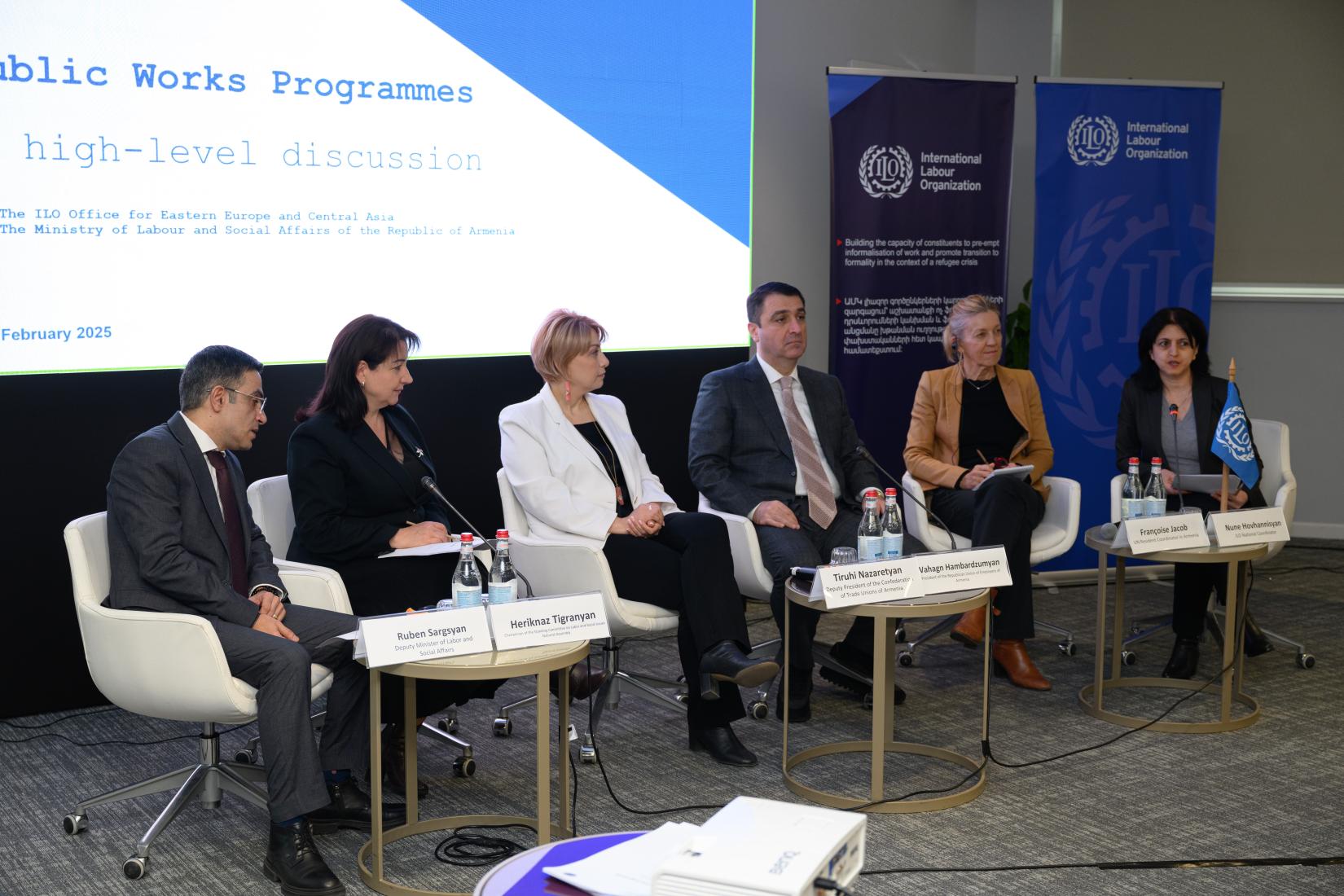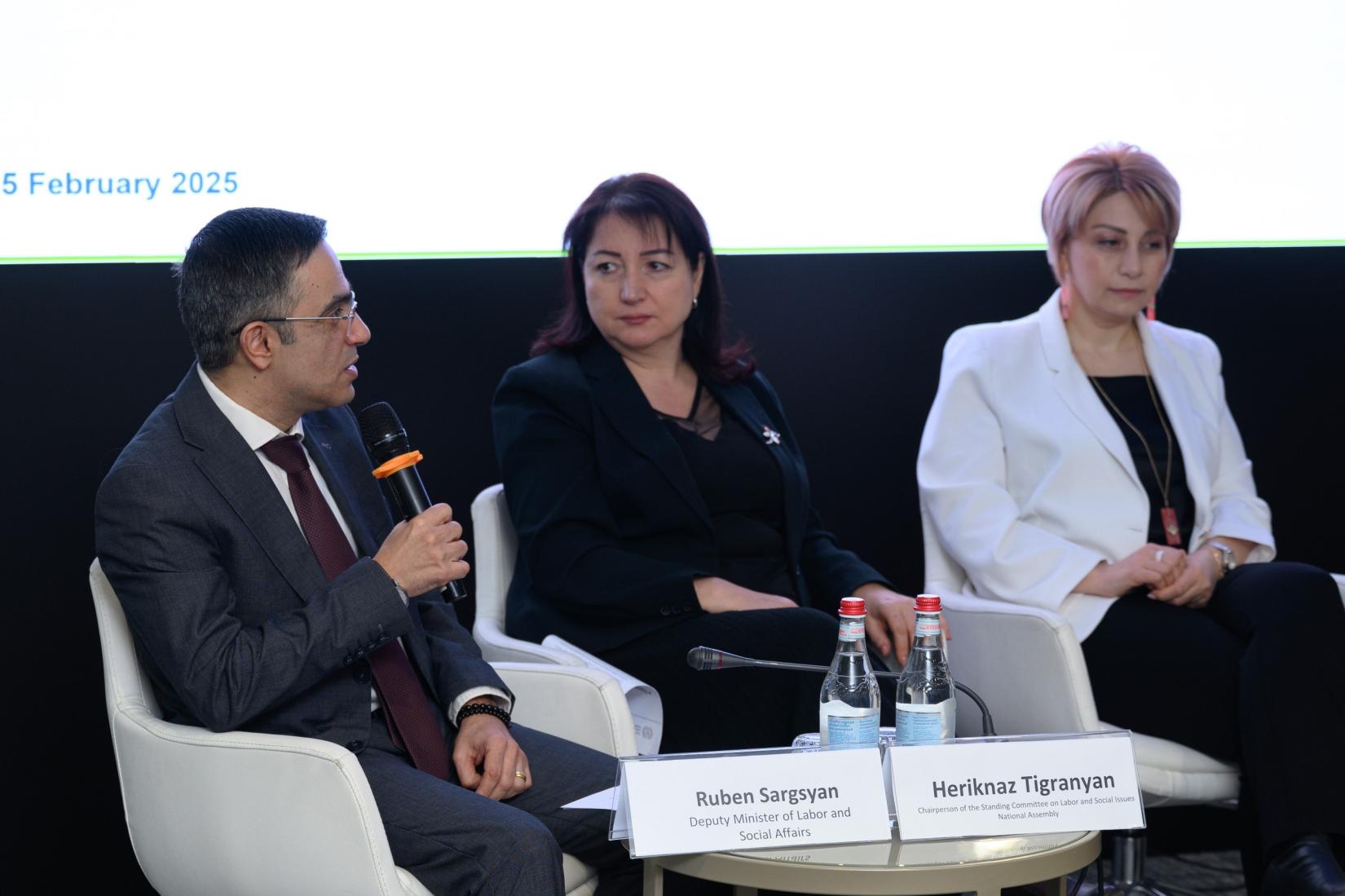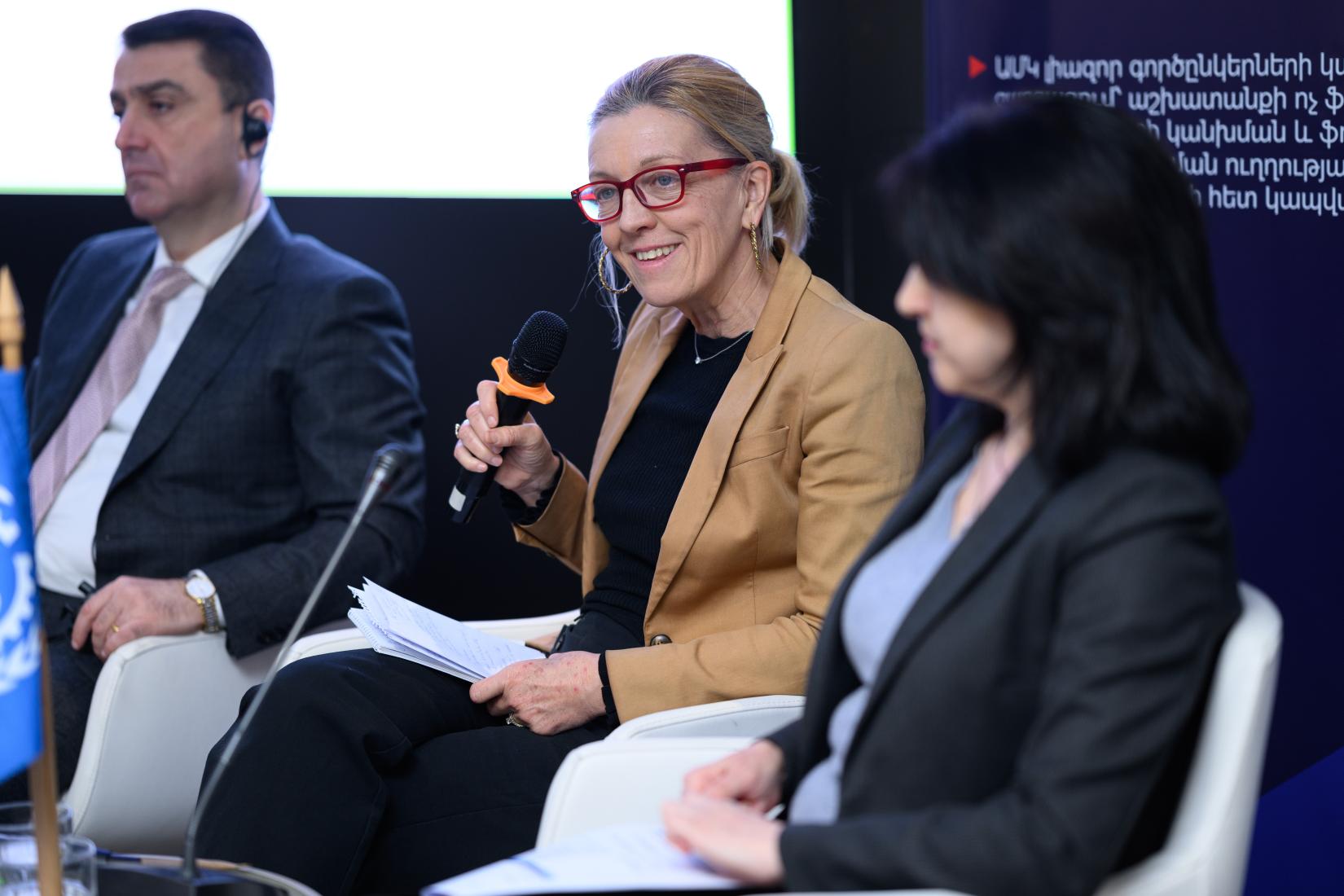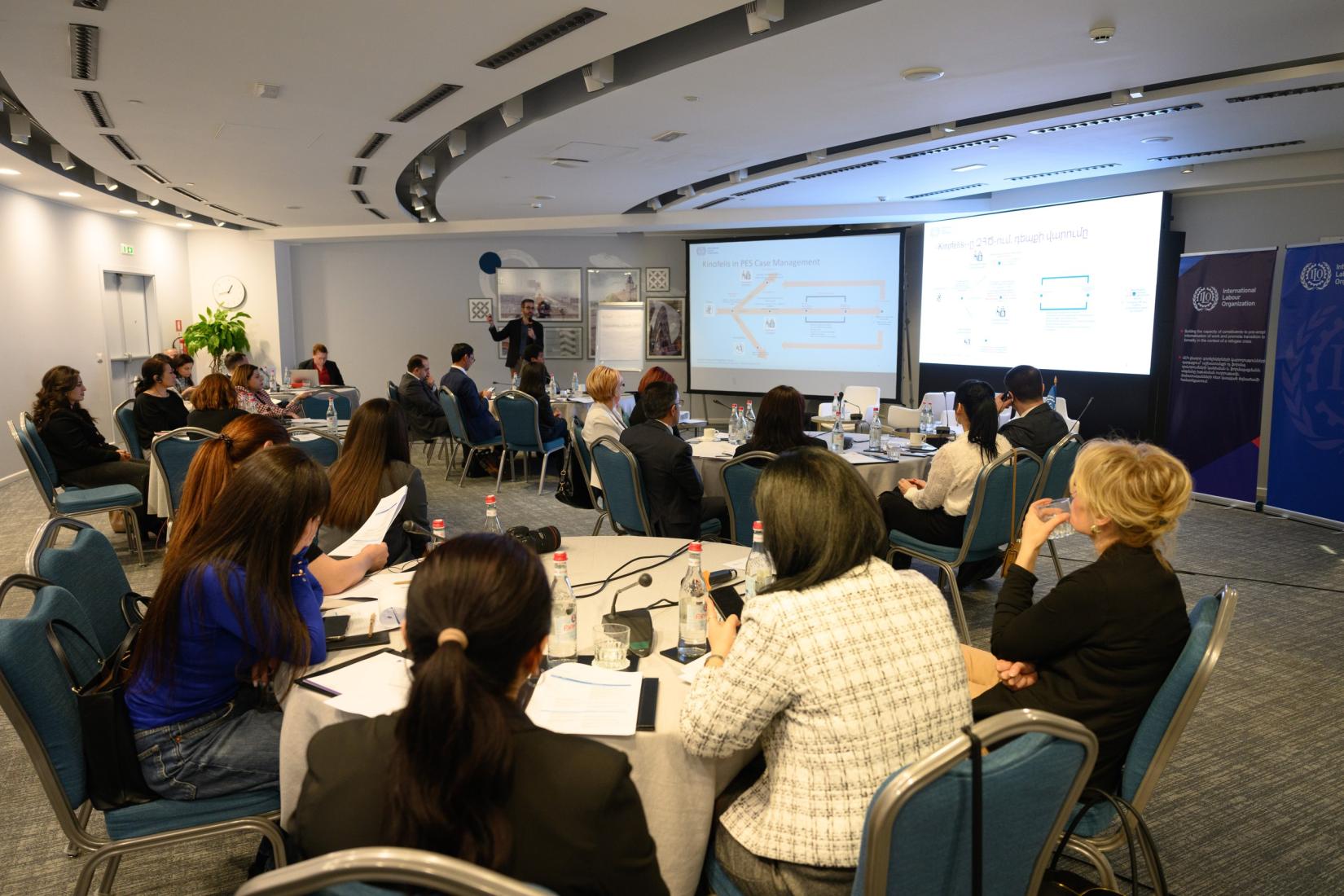ILO Supports Designing Public Works Programmes for Sustainable Employment in Armenia
17 February 2025
Yerevan, 5 February 2025 – International Labour Organization (ILO), in collaboration with the Ministry of Labour and Social Affairs of Armenia, convened a high-level discussion on public works programmes (PWP). This event brought together policymakers, social partners, and international experts to explore strategies for expanding employment opportunities in Armenia.

Armenia is undergoing significant labour market reforms aimed at addressing poverty and ensuring better-targeted social assistance. With recently adopted legislative changes in the Law on State Allowances, the eligibility of approximately 85,000 families currently receiving family and social benefits is set to be reassessed. As a result, ensuring sustainable employment and income opportunities for individuals whose allowances may be discontinued has become a policy priority. To this end, the Ministry of Labour and Social Affairs is preparing public works programmes as a key safety net intervention.
In his opening remarks, Ruben Sargsyan, Deputy Minister of Labour and Social Affairs, highlighted the crucial role of public works programmes in implementing Armenia’s newly adopted employment strategy: "At the implementation stage of our strategy, public works programmes will play a key role. Today’s discussion aims at developing more effective public works programmes that will help citizens overcome difficult life circumstances and facilitate their reintegration into society and the labour market."

Public works programmes have long been recognized globally as a means of generating employment, reducing poverty, and fostering economic resilience. Over the past century, the ILO has supported and refined PWP approaches across diverse contexts, from post-conflict recovery to economic downturns and natural disasters. These programmes, when strategically designed, go beyond short-term employment by contributing to long-term skills development, sustainable job placements, and community asset creation.
In her opening remarks, Francoise Jacob, UN Resident Coordinator in Armenia, emphasized the broader significance of PWP: "One of our top priorities in Armenia is to address inequalities, and as part of that, we must advance the decent work agenda. Public works are not just about providing cash or temporary employment—they must create value for individuals, communities, and the country as a whole. Armenia has the opportunity to design programmes that build skills, foster a sense of contribution to society, and support long-term employability."

Tiruhi Nazaretyan, Vice-President of the Confederation of Trade Unions of Armenia (CTUA), highlighted the significance of these discussions, stating: "We welcome initiatives that contribute to improving the environment for decent work in the labour market. We also observe an ongoing cultural shift in the labor market, particularly in the context of upcoming reforms in the benefits system. The introduction of public works programmes and their institutionalization is a welcomed development."
Vahagn Hambardzumyan, President of the Republican Union of Employers of Armenia (RUEA), emphasized the transformative potential of public works programs: "Public works programmes should bring about a change in status and mindset, shifting people from dependency on benefits towards employment. As a stage of socialization, individuals transition into the labour market, which is undoubtedly welcomed from the perspective of employers. We stand ready to support the implementation of these programs."

The event provided a platform for key stakeholders to exchange insights, strengthen coordination, and refine the vision for Armenia’s public works programmes. Stakeholder discussions focused on aligning Armenia’s public works initiatives with international best practices while tailoring them to the national
context. Participants explored opportunities for integrating skills training and employment services in PWP to enhance the long-term impact of such public investment.
Moving forward, the ILO and the Ministry of Labour and Social Affairs will continue working together to ensure these programmes effectively contribute to poverty reduction, economic inclusion, and sustainable employment.
Following the high-level discussion, a two-day hands-on design workshop was organized օn 6 and 7 February, bringing together policymakers and programme implementers from the Ministry of Labour and Social Affairs and the Unified Social Service. The workshop provided an opportunity to examine in-depth the design and implementation of PWPs, facilitate experience-sharing, discuss the various design options of PWPs to develop clear and actionable recommendations for a PWP framework in Armenia.
The events were organised within the framework of the ILO RBSA-funded intervention on “Building the capacity of constituents of pre-empting informalisation of work and promote transition to formality in the context of a refugee crisis” in Armenia.



